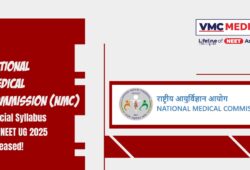NEET 2024 Exam Scandal: Supreme Court Orders Transparency Amid Allegations!
 Posted On
Posted On
171 total views, 2 views today
The NEET UG 2024 exam has found itself embroiled in controversy as allegations of paper leaks and subsequent malpractices have shaken the integrity of this critical national-level examination conducted by the National Testing Agency (NTA). The Supreme Court of India, in response to petitions challenging the conduct of the exam, has intervened to demand transparency from the NTA on several critical aspects.
Supreme Court’s Directives and Observations
During the recent hearing, Chief Justice DY Chandrachud, joined by Justices J B Pardiwala and Manoj Misra, instructed the NTA to fully disclose information on three crucial matters:
- Timing of Paper Leak: The court seeks clarity on when the first instance of the paper leak occurred.
- Distribution of leaked question papers: The method by which compromised exam questions were circulated.
- Duration Between Leak and Exam Conduct: The time lapse between the occurrence of the leak and the actual conduct of the exam.
The bench acknowledged that a paper leak had indeed taken place, emphasizing that such compromises severely undermine the sanctity of the examination process. These revelations have sparked widespread concerns among stakeholders, particularly among the candidates who appeared for the NEET UG exam under the shadow of doubt regarding its fairness.
Petitions and Responses
Various petitioners have called for stringent actions, including the cancellation of the current results and a demand for re-examination due to the alleged leak. The Centre and the NTA, however, have expressed reluctance towards scrapping the exam entirely, citing the involvement of the Central Bureau of Investigation (CBI) in investigating cases across multiple states.
In their affidavits, both the Centre and the NTA stressed that while acknowledging isolated incidents of malpractice, there was no substantial evidence to support claims of widespread breaches affecting the entire examination. They argued that canceling the exam would unfairly penalize the lakhs of candidates who participated honestly in the 2024 NEET UG.
Government and NTA’s Stand
The Ministry of Education highlighted the potential detrimental impact of canceling the exam on qualified candidates, emphasizing the need to balance justice with the future career prospects of honest aspirants. The NTA echoed similar sentiments, cautioning against hasty decisions that could harm the larger public interest and the credibility of the examination process.
Moreover, the government disclosed its initiative to form a high-level panel comprising experts tasked with recommending robust measures to ensure the transparent and fair conduct of future examinations by the NTA. This step aims to address the loopholes exposed by the current controversy and to restore trust in the examination system.
Looking Ahead
As the NEET UG 2024 scandal unfolds, it raises significant questions not just about this specific examination but also about the broader implications for India’s education system. The Supreme Court’s intervention underscores the critical need for accountability and transparency in conducting national-level entrance exams, which are pivotal in shaping the academic and professional futures of millions of students across the country.
While the investigation progresses and stakeholders await the next steps, the focus remains on ensuring justice for all affected parties while upholding the integrity of educational assessments. The outcomes of this case are likely to set precedents for future examinations, influencing policies and procedures aimed at safeguarding the sanctity of India’s competitive exams.
In summary, the NEET UG 2024 controversy serves as a stark reminder of the challenges in maintaining the integrity of high-stakes examinations in a digital age. It calls for a concerted effort from all stakeholders—government bodies, educational institutions, and the judiciary—to institute measures that uphold fairness and meritocracy in the assessment of India’s aspiring medical professionals.




